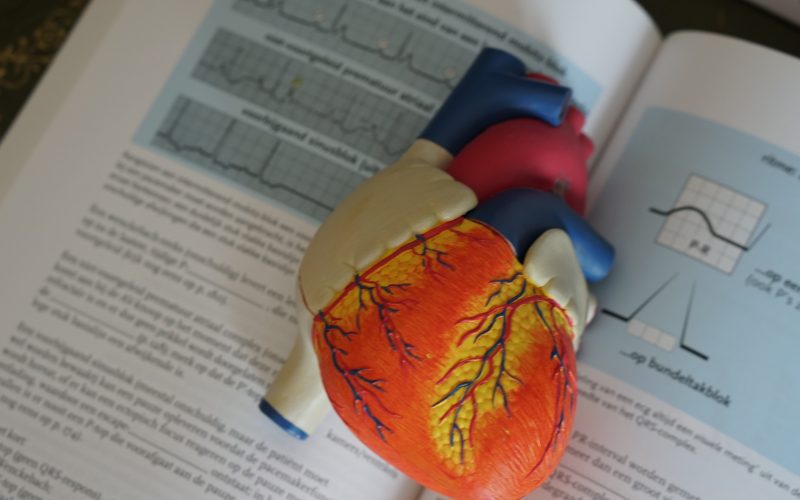Introduction
Are you concerned about your heart health? Do you want to make small, simple changes to your lifestyle that can have a big impact on preventing heart disease? Look no further than this blog post. We’re here to show you the power of prevention and how some easy tweaks to your daily routine can help keep your heart healthy and happy for years to come. So sit back, relax, and get ready to learn about the small changes that can make a huge difference in protecting one of our most vital organs.
What is heart disease?
Heart disease is a general term used to describe a number of different conditions that affect the heart. Heart disease is the leading cause of death in the United States, and it’s a major health problem worldwide.
There are many different types of heart disease, and they can range from relatively benign to life-threatening. The most common type of heart disease in the United States is coronary artery disease, which can lead to heart attacks. Other types of heart disease include congestive heart failure, valvular heart disease, and arrhythmia.
The best way to prevent heart disease is to live a healthy lifestyle. Eating a healthy diet, exercising regularly, not smoking, and maintaining a healthy weight are all important factors in preventing heart disease. If you have any family history of heart disease, it’s also important to get regular checkups with your doctor and to be aware of your risk factors.
The risk factors for heart disease
Heart disease is the leading cause of death for both men and women in the United States, and it’s a preventable disease. While there are many risk factors for heart disease, some are more controllable than others.
Controllable risk factors include:
-High blood pressure
-High cholesterol
-Smoking
-Diabetes
-Obesity
-Unhealthy diet
-Sedentary lifestyle
You can control these risk factors by making lifestyle changes, such as eating a healthy diet, exercising regularly, and quitting smoking. Making these changes can help reduce your risk of developing heart disease or having a heart attack.
How to prevent heart disease
Heart disease is the leading cause of death for both men and women in the United States. It is also a major cause of disability, preventing people from living full, healthy lives. The good news is that heart disease is preventable. Making small lifestyle changes can go a long way toward protecting your heart.
Here are some tips for preventing heart disease:
-Get regular exercise. Exercise strengthens your heart and helps to keep your cholesterol and blood pressure in check.
-Eat a healthy diet. A diet rich in fruits, vegetables, whole grains, and lean protein can help to lower your risk of heart disease.
-Quit smoking. Cigarette smoking is one of the leading causes of heart disease. If you smoke, quitting is the best thing you can do for your heart health.
-Limit alcohol consumption. Drinking too much alcohol can raise your blood pressure and contribute to heart disease. If you drink, do so in moderation.
-Manage stress. Stress can take a toll on your heart health. Learning to manage stress in a healthy way can help to lower your risk of heart disease
Foods to eat for a healthy heart
When it comes to heart health, what you eat is just as important as how much you eat. A diet that is high in fiber, lean protein, healthy fats, and antioxidants can help keep your heart functioning properly. Here are some specific foods that are good for your heart:
-Oats: Oats are a great source of soluble fiber, which can help lower cholesterol levels.
-Fish: Fish, especially fatty fish like salmon, are high in omega-3 fatty acids. These healthy fats have been shown to reduce the risk of heart disease.
-Berries: Berries are packed with antioxidants and polyphenols, which have both been linked to a reduced risk of heart disease.
-Nuts: Nuts contain monounsaturated fats, polyunsaturated fats, and omega-3 fatty acids—all of which are good for your heart. Just be sure to limit your intake of nuts if you’re also trying to lose weight, as they are calorie-dense.
Exercise for a healthy heart
It’s no secret that exercise is good for your health. But did you know that it can also help keep your heart healthy? Regular exercise can help lower your blood pressure and cholesterol levels, and it can also help you maintain a healthy weight.
But how much exercise do you need to keep your heart healthy? The American Heart Association recommends at least 30 minutes of moderate-intensity aerobic activity most days of the week. But if you’re just starting out, even 10 minutes of exercise a day can make a difference. And it’s never too late to start exercising for heart health. No matter how old you are, regular physical activity can improve your cardiovascular fitness level.
So what counts as moderate-intensity aerobic activity? Anything that gets your heart rate up and makes you breathe faster and feel warmer. Walking, biking, swimming, and dancing are all great examples. And there’s no need to go to the gym – you can get moderate-intensity exercise by doing everyday activities like yard work or taking the stairs instead of the elevator.
Remember, the key is to find an activity that you enjoy and to stick with it. That way, exercising for a healthy heart will become part of your regular routine – and something that you look forward to doing.
Conclusion
The Power of Prevention is a powerful concept that encourages us to make small lifestyle changes in order to protect our hearts and maintain healthy living. Simple steps such as reducing stress, managing blood pressure, eating healthily and exercising regularly can have significant benefits for heart health over time. It’s never too late to start making positive changes for your body. With some dedication and perseverance, you can take control of your heart health today!












